The History of Caldwell Cigar Company
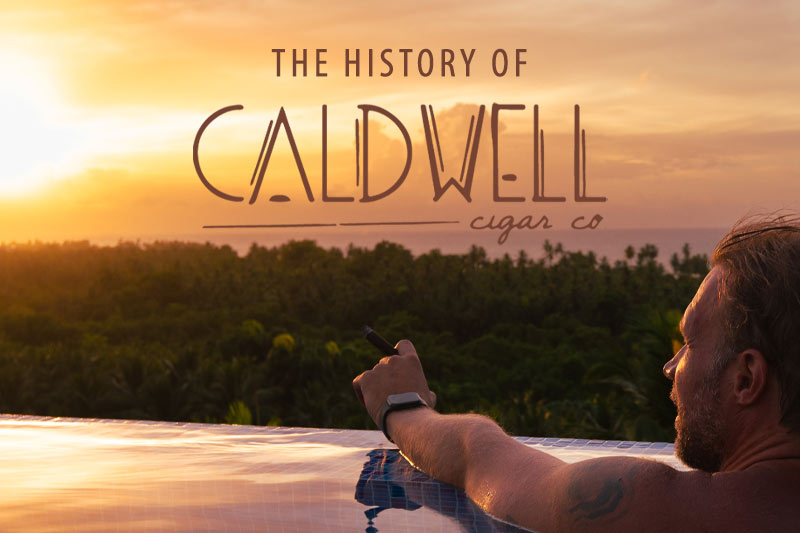
Building a successful cigar company is pretty straightforward. All it takes is talent, creativity, vision, and a willingness to abandon your personal life for years to do and think about nothing else.
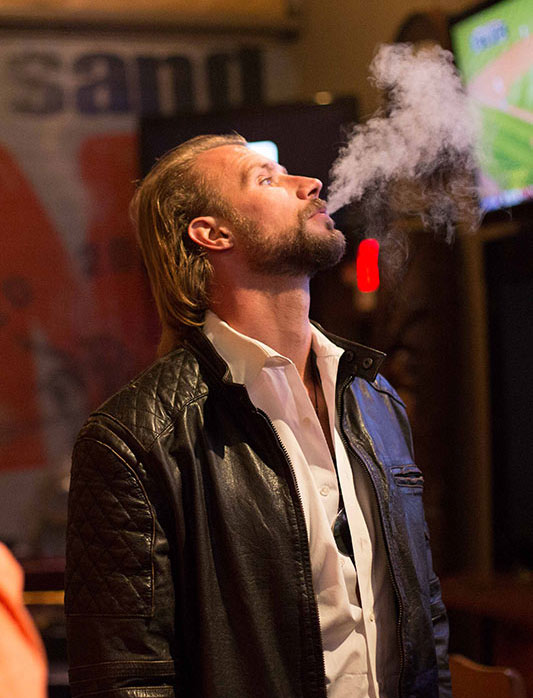
"The work was nonstop," says Robert Caldwell, founder of Caldwell Cigar. "There was no getting away from it. There was no day off. There was no turning off your phone. There was no enjoying dinner with the wife. It was just full-blown, full-court press all the time."
He was traveling a great deal in those early years of Caldwell Cigar. "It was always a different time zone and it seemed like when you woke up, stuff was already going on. Then you'd fall asleep at night time working on your phone. When not doing, you're in the warehouse, or you're at the factory, or you're packing up shipments, or you're putting out fires. So, it was an unrelenting firehose of business and the challenges that come with it."
That hard work paid off, and Robert was accustomed to hard work anyway. He was in a business he loved, and tobacco had been part of his life for a long time.
An Introduction to Tobacco
Born and raised in Miami, Robert was geographically located for cigar appreciation. His first smoke was when he was 11 years old. It was a machine-made cigar, but he liked it. "But my first premium cigar was at 12," he says, "and that was when I fell in love."
Robert's family wasn't supportive, as may be imagined. "I was a bad kid, and my brother-in-law caught me smoking a Philly or a Have-A-Tampa or something. He thought the best solution was to take me to a cigar factory in Miami." The idea was to convince Robert that he didn't like smoking as much as he thought. "That factory was owned by Ernesto Perez Carrillo, who now owns EPC Cigars and used to own La Gloria Cubana." Robert's brother-in-law bought a cigar for Robert. "It was a huge, 10-inch, super dark, super strong cigar." He brought Robert home with that cigar with the intention of having him smoke it until he became too sick ever to want another. "Instead," says Robert, "I smoked it all and fell in love."
It wasn't as tough for him to acquire his cigars as it may have been for others. "I'm really big," he says. "I'm 6' 6" now, and when I was 12, I was probably 6' 2", 200 pounds, and I looked a lot older. I actually had a beard at 12 or 13. So I was able to walk into cigar shops, 6' 2" or whatever, 200 pounds with a full beard. And, nobody really questioned my age, because I looked many years older than I was. I don't know if I quite looked like 18, but I definitely could have passed for that. So I didn't really get any grief on the purchasing side, which was nice."

His natural industriousness helped him, too, as far as affordability. "I was very entrepreneurial. I washed cars and did all the stuff kids do to make money. I grew up in Miami, so there are a lot of tropical fruit trees. So I used to go get mangoes, and avocados, and mamey, and all this stuff from neighborhood trees and sell them. And then I fished golf balls out of ponds and sold them to golfers, and I then started washing cars. I ended up getting a bunch of friends to wash cars and did that all through high school. When I was in college, I started bartending. Nothing solid, nothing career-building."
Employment Seemed Irrelevant
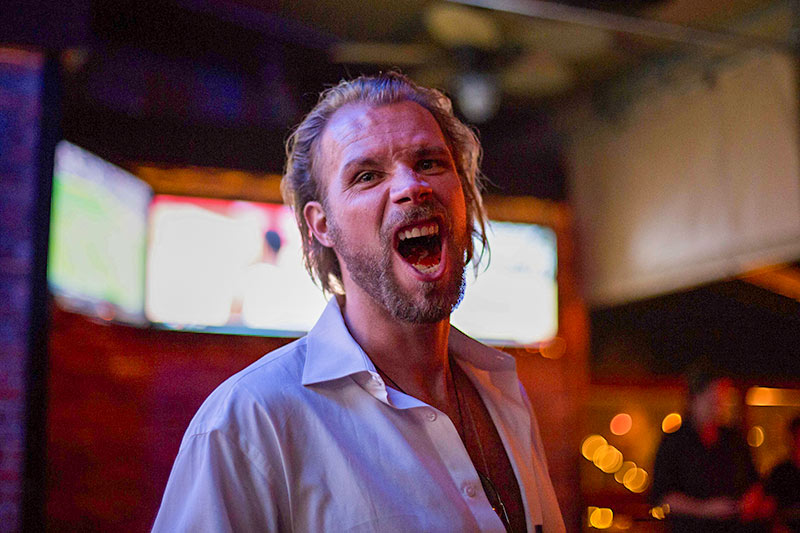
Robert says he never had a real job. The closest, perhaps, was when he worked as a real estate consultant, but that happened at the end of the housing boom and the beginning of the housing bubble implosion in 2008, so it didn't last. "From there, I started my first company, which was called the Hotel Humidor Company. We provided cigars to restaurants and hotels in the Miami area, and then some other cities as well. Miami is beautiful for a business like that because we have so many tourists, but it's incredibly ostentatious. Guys would come to Miami and want to smoke, drink, and party. So we had a never-ending supply of customers. But I never really had a job per se. I did have things that I did to make money. But I've never had a show-up-and-punch-the-timeclock thing."
In 2011, prior to the launch of Caldwell Cigars in 2013, Robert launched the Wynwood Cigar Factory in Miami, but it didn't work out long-term. "It was a young, hip, very similar concept, I guess, to Caldwell, in terms of the approach. But the brand was built around me. I had a business partner; he'd been in the industry for a long time. It was supposed to be my project, but when your partner has been around the block a few times and is currently in the industry, they have a lot of opinions on everything. It became a wrestling match over whose project it was. Rather than it being my project with him as a supporting actor, it turned into a two-headed project, and we just ended up butting a lot of heads over the presentation and everything else."
"...we had a never-ending supply of customers"
Marketing concepts were a constant source of friction. "I wanted to do these crazy marketing things, and he thought they were too risky. I wanted to do a lot of the stuff that I ended up doing with Caldwell. I think that that was just a little bit too difficult for him to get his head around at that point in time. So my silent partner turned into somebody wanting to have control over everything, and that wasn't what I signed up for. We were incredibly successful, though. Everything was going really well. But I woke up one morning and I just said, 'I can't do this anymore.'"
Robert decided he couldn't achieve his goals without setting boundaries. "I effectively said, 'Hey, this is how it has to be," and, he said, 'It's not going to be that way.' I ended up walking after not being able to get control of it the way that I wanted to. Soon thereafter, it went out of business."
Lost & Found

Robert was now moving forward with his vision for what his next company should be. Just six weeks before launching Caldwell Cigar Co., though, another project attracted his attention: Lost & Found cigars.
"It was an accident," says Robert. He had bought some discontinued factory cigars for personal use. He liked them so much that he shared them with Tony Bellato of the La Barba cigar brand and Tony's father. They too liked the cigars and wanted to purchase some, so Robert contacted the factory and imported more of the same discontinued stock. Once on store shelves, Lost & Found became fairly popular, and after about five years, demand increased significantly. "Obviously, I was so focused on Caldwell. Lost & Found was just a fun afterthought. But there was just so much demand for Lost & Found: we'd bring in 10,000, 20,000 cigars, and they'd sell right away." Robert realized he needed to take the brand more seriously.
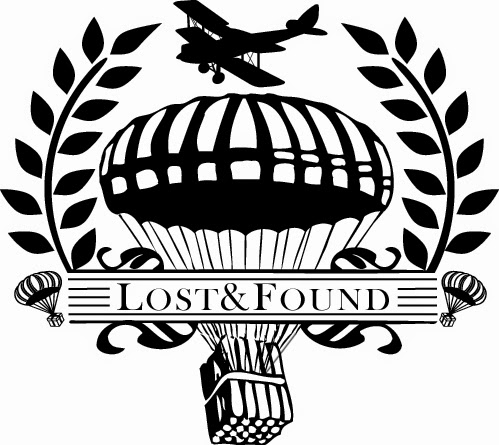
The way it worked was that Robert found exceptional orphaned cigars in factories and marketed them under the Lost & Found brand, but after a while, few quality cigars left unclaimed in factories still existed. "We pivoted to manufacturing Lost & Found about two and a half years ago. There's more of the good stuff out there now; supply comes and goes. There's some really good deadstock that we're going to acquire and use in the way that we've traditionally operated. But, there was really a two- or three-year dead spell. I saw that happening; I saw the factory inventories of good stuff dwindling. We were the main purchaser of it. But through COVID, a lot of people repurchased a lot of really good stuff that was sitting around. So I saw the writing on the wall, and I think about six months prior to the factories just having no good dead stock, nothing that was up to our caliber, we pivoted and started our manufacturing project."
"I saw the factory inventories of good stuff dwindling"
In the near future, Lost & Found will see some changes. "Going forward," says Robert, "it'll be a little mix of everything. We'll be manufacturing some stuff, and then also, there is some really good stuff that's emerging now that the market's moderated a bit recently. We're currently working on several projects; really cool, fun projects, conceptual iterations of what we've done prior. I don't want to give it away yet, because we haven't announced it. But, pivoting in terms of concept, we're going to do some really fun stuff that I think is in line with the brand's origins. It's always been pretty disruptive in the industry."
Caldwell
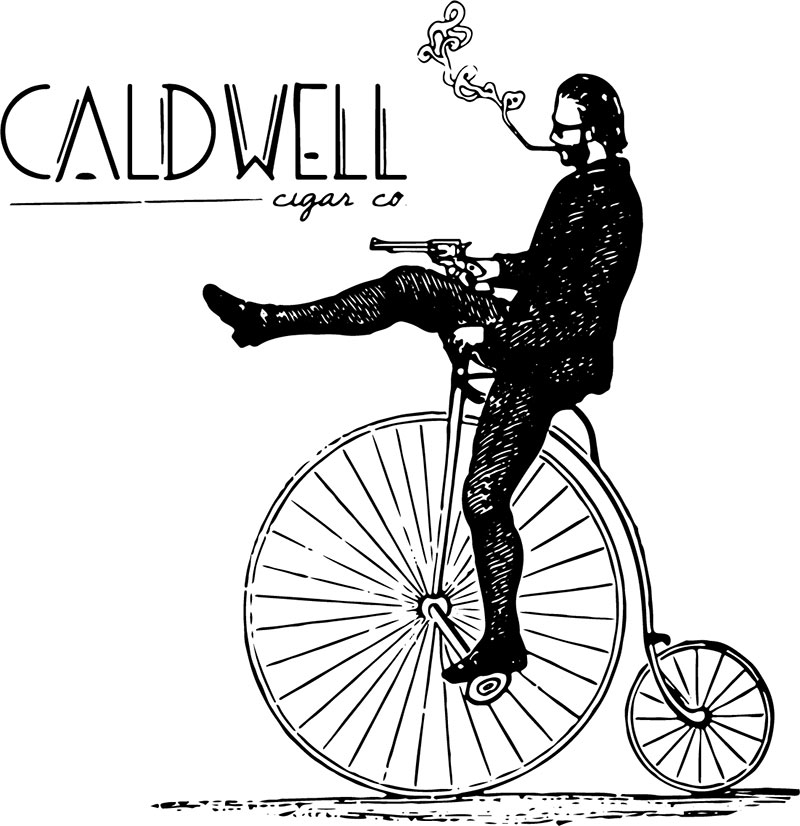
But Lost & Found was a secondary company for Robert. A few weeks after Lost & Found launched, it was time for Caldwell Cigar Co. to make its debut. "It was a different concept of a brand, but in terms of what I was planning to do, I just picked up from Wynwood Cigar Factory and applied all my ideas to Caldwell. So Caldwell really became the company that the first was meant to be."
Two friends became his partners, Juan Jaramillo and Hernando Caicedo, and they were more silent than in his previous experience, though they worked extraordinarily hard. "We were very good friends for 30 years, and we wanted to create a company with a contemporary edge in terms of flavor by using more rare and exotic tobaccos, and then developing packaging that was also reflective, I think, of what we were trying to do with the tobacco. So our packaging is very standard boxes in terms of construction. We don't use Chinese heavy lacquered plastic style boxes, like that. Very classic boxes, but with very progressive artwork." The artwork and packaging is part of what made Caldwell cigars so noticeable and desirable. They are complex, sophisticated, unique cigars packaged and presented in radically novel ways.
"It was a different concept of a brand"
Hernando was a financial partner, and Juan concentrated on numbers and accounting. "Neither had been in the cigar industry or run a business, so it was a fresh start for them in terms of doing something entrepreneurial, and they believed in what I was doing. The agreement was made in the beginning there that when it came to creative decisions, marketing, and branding concepts, they let me work. On the larger, structural decisions of the company, they were involved fully. It became a very fluid and positive, complementary partnership." It was exactly what Robert had wanted with his previous business relationship.
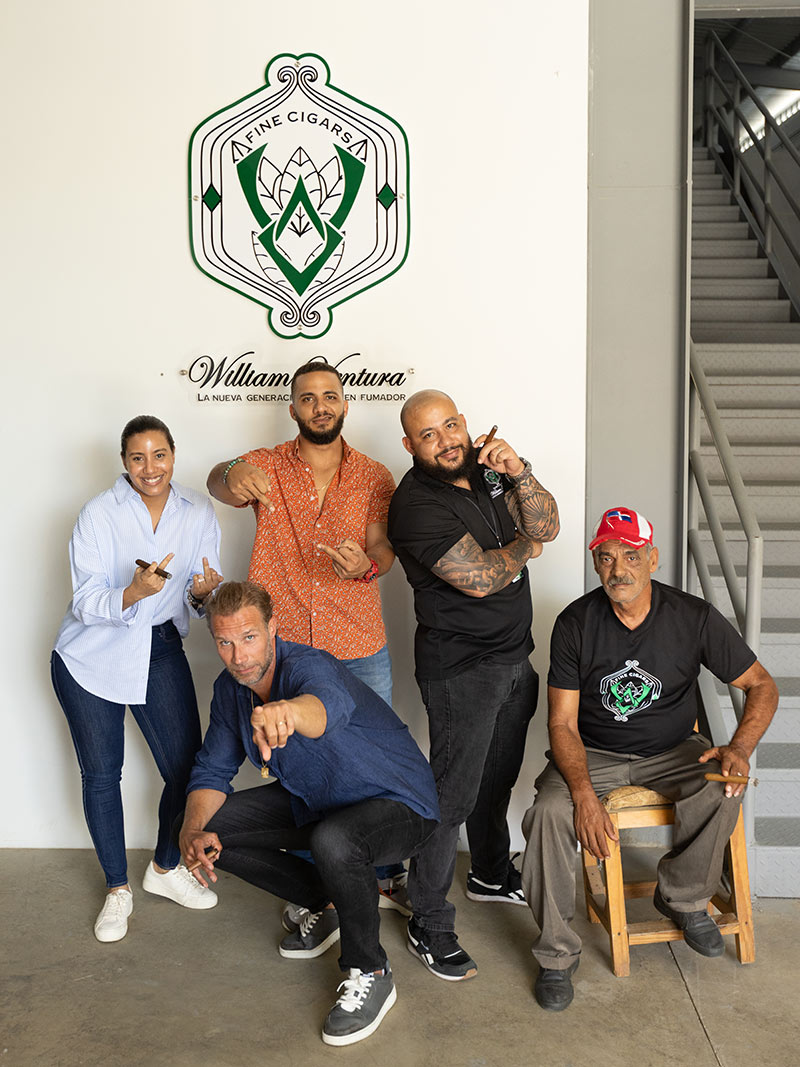
Robert Caldwell with the crew at Tabacalera William Ventura
"Robert is a very creative and amazing marketing person," says Juan, "but he's a very unamazing person for spreadsheets and organization. And I am, I think, the contrary. I think we complement each other very well."
They found clients the old-fashioned way: by visiting shops in person, hundreds of them. "We just showed up unannounced," says Robert, "showed the product, had people try it, and then took orders that way. So it was very grassroots. It was just pounding on doors, walking in, and getting orders. But we sold exceptionally well. I think on our first sales trip, which was three or four days, we sold 25% of our production. We'd visit five accounts a day. You sit down and smoke a cigar, and enjoy good company. We stayed in questionable hotels because we were very conscious of travel expenses. The days would end with an event at a retailer, a meet and greet, or a presentation with consumers. We'd finish at 10:00 or 11:00 p.m., jump in the car, and drive to the next city. In some areas, that's a 45-minute drive. In some areas, it's a five-hour drive. But we'd do sales trips and have fun, and we'd go to fun places and eat, and we just had fun wherever we went.
"So we'd finish Los Angeles at 11:00, say, and jump in the car and drive to either San Francisco or to Fremont in central California, putting in three or four hours of windshield time. Crash in a Motel 6 or Redwood Inn, and then wake up the next morning and finish the drive or hit the first store. Five days of that and then I'd fly back to Miami, and the next morning I'm at a warehouse, packing and shipping. So it was really just unrelenting those first years. Part of the problem was because we didn't have the confidence to hire enough warehouse employees and support staff."
"...the first three years were just complete insanity"
Robert admits that much of his stress was self-imposed. "I'm such a control freak that I couldn't let go of certain things, so I would elect my free time. And then also, on the budget side, we had a guy who managed all the back of the business in Miami, and he was a very integral part of our company and he took it upon his shoulders to outperform. So, like I said, it was a full-court press, dead sprint for seven years. In my first year, I traveled 330 days. The second year was a little bit better than that, but I think the first three years were just complete insanity. Even if I was in Miami and I had a day to spare, I'd drive up to Palm Beach, or I'd go down to the Keys and visit retailers. And it was just this incredibly frantic, probably very unhealthy, attack mode that I was in for a very, very long time."
"It was just pounding on doors, walking in, and getting orders"
That approach may have been difficult, but it elevated the brand and made it successful. "It's one of those things, where in hindsight, when you get to where we got to as a brand, you feel like maybe you should pat yourself on the shoulder and say, 'Man, what we accomplished was awesome,' but another part of you says, 'What was I thinking? I spent so long not enjoying life.' Because you are really owned by your business. And these things are also very normal for an entrepreneur, but it was a challenge."
Caldwell cigars overperformed, and that became a problem. The partners had started with the ambition to sell 100,000 cigars the first year, but those 100,000 cigars sold out in five weeks. "Then we'd order 200,000 cigars, or whatever the number was, with the hope that we could sell them, and we'd oversell again. So, we just were chasing our tails for the longest time. We had a lot of inventory issues that probably hindered our growth the first five or six years. We had explosive growth the first year, and then we had really bad back-order issues for a couple of years; we still grew, but we grew at a more moderate pace. And then we fixed those problems, at least for a while, and then grew like hell again because we had inventory, and then we hit some more inventory issues. Since then, it's been steady sailing, except for a fire in the factory that set us off course. Besides that, it's been great."
The Meeting of Future Partners
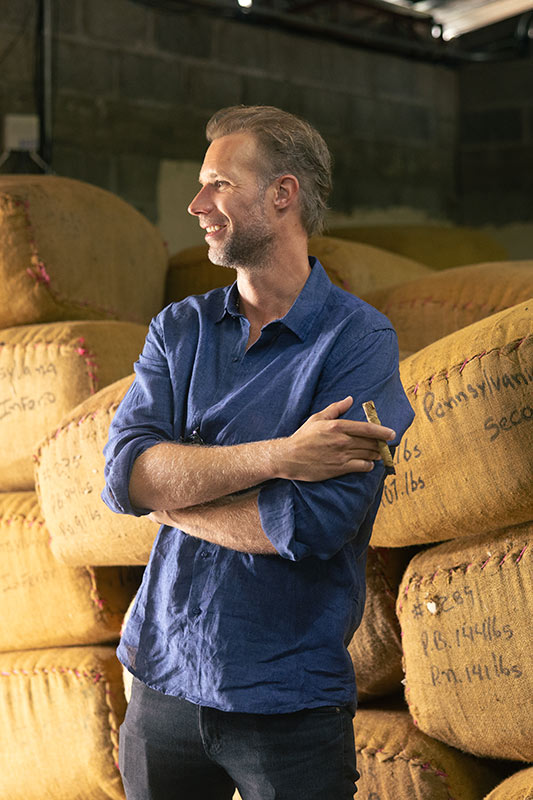
One of the relationships that Caldwell Cigar Co. built and enjoyed was with Laudisi Enterprises, the parent company of Smokingpipes. Both companies loved their products and loved to geek out over the details. When circumstances allowed, Sykes and Shane and others from Laudisi would sit up into the night with Robert and Juan of Caldwell, and simply share their enthusiasm, examine the intricacies of cigars and pipes, and find that they resonated in an impressive way. Their philosophies were so similar that a bond was built.
Then they started thinking about how they could help each other improve, because improvement is always the goal for those who love their work and their products. They noticed that similarly to how Juan's and Robert's skills differed and complemented each other, Caldwell Cigar Co.'s and Laudisi's particular strengths might also work together.
They found an elegant solution that would support the capabilities of both organizations. In March of 2024, Laudisi purchased Caldwell. Robert and Juan stayed on to run Caldwell while Hernando opted to move on to other projects.
"The sale was an answer to many challenges," says Robert. "My most valuable assets are my aptitudes for sales, marketing, design, and product development. That's what I'm good at. That's what people believed in. Laudisi is a great organization with solutions to a lot of the daily, weekly, and monthly problems, issues, and responsibilities that we had as a small company."
Initial conversations with Laudisi weren't about the sale of Caldwell. "It was really about making the company prosper," says Robert, "by removing some of the unnecessary things that Juan and I were doing. We were very small, only four employees, and stepping into a much larger company was a light at the end of the tunnel, where we could do what we do best without all of the multitasking."
"My most valuable assets are my aptitudes for sales, marketing, design, and product development"
Now, given the freedom to pursue innovative cigar blends and messaging, Caldwell Cigar Co. is poised for remarkable achievements. Cigars have always been the most important consideration, providing smoking experiences unique in the world of premium tobacco. Rare components, creative blending, and imaginative messaging will continue to dominate the company's contributions to the smoking world, and Robert Caldwell's spirit and indomitable ingenuity now enjoy the freedom to flourish.
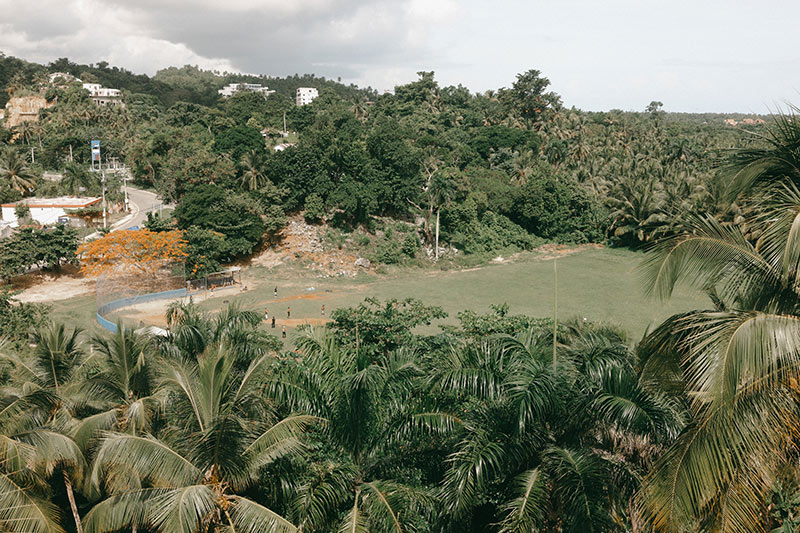
Dominican Republic, June 2024





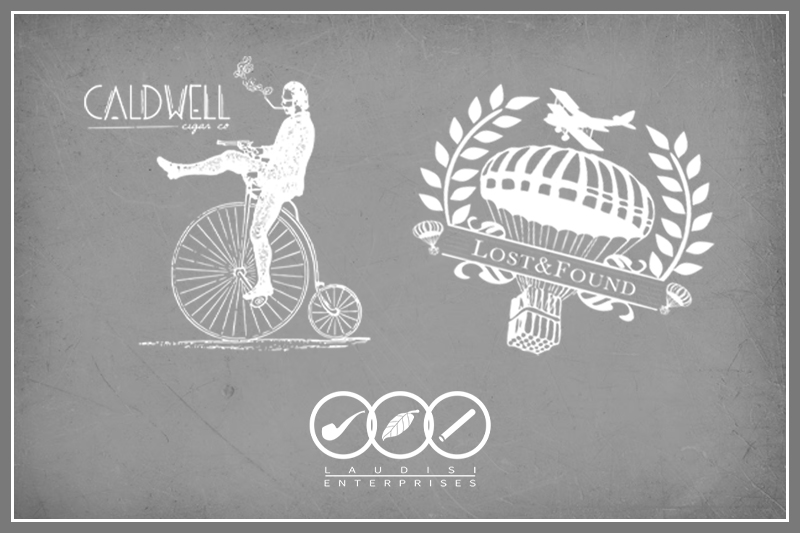
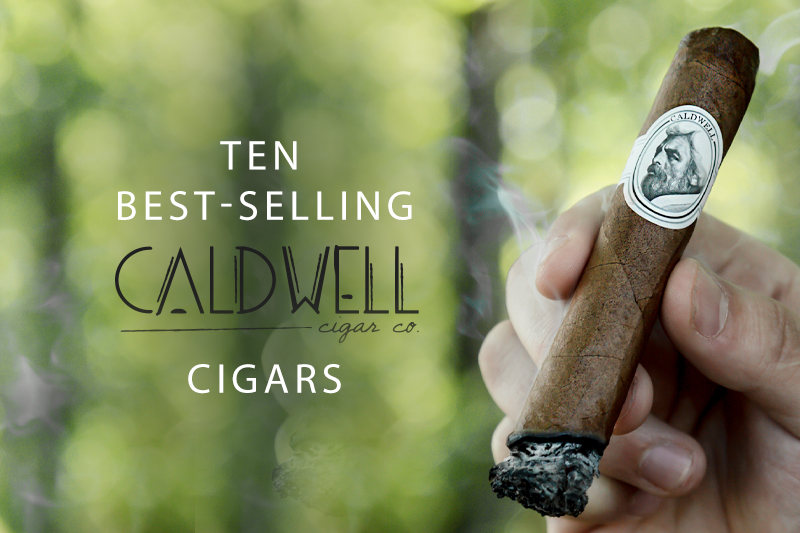
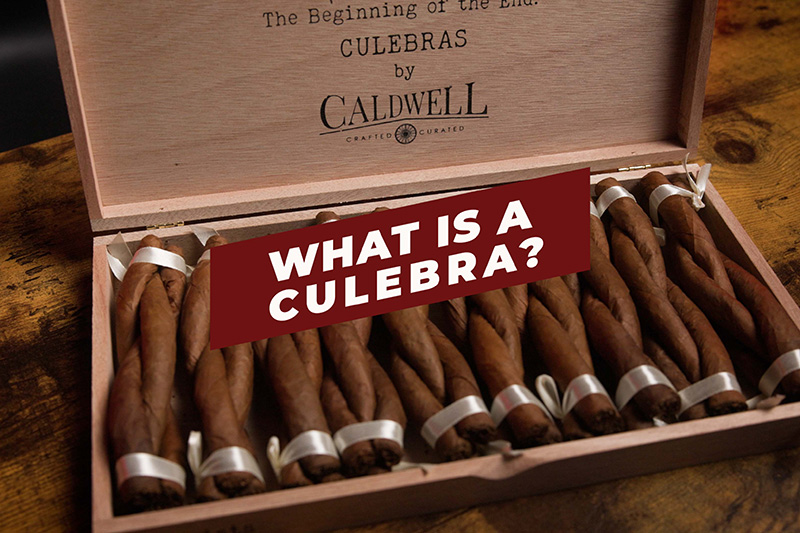
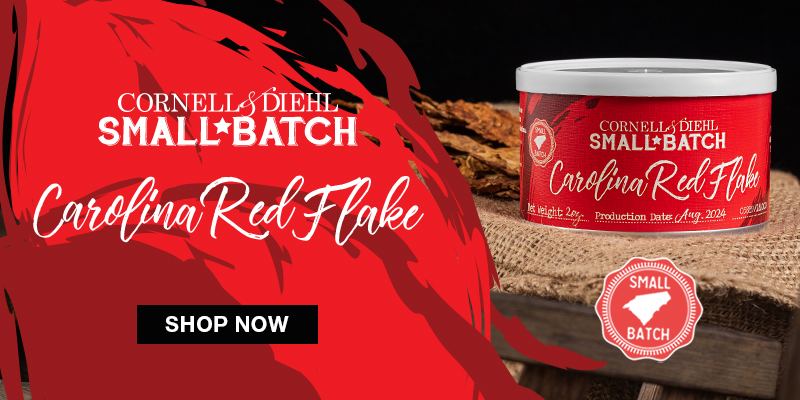
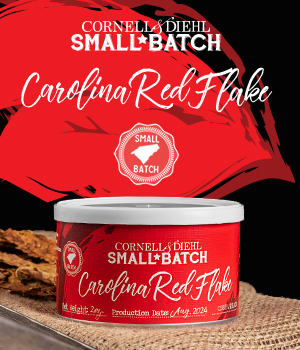
Comments
The History of Caldwell Cigar Company is a fascinating exploration of passion and craftsmanship in the world of cigars. Their dedication to quality and innovation not only reflects a rich heritage but also sets them apart in the industry. It's inspiring to see how they honor tradition while continuously pushing the boundaries of what a premium cigar can be.